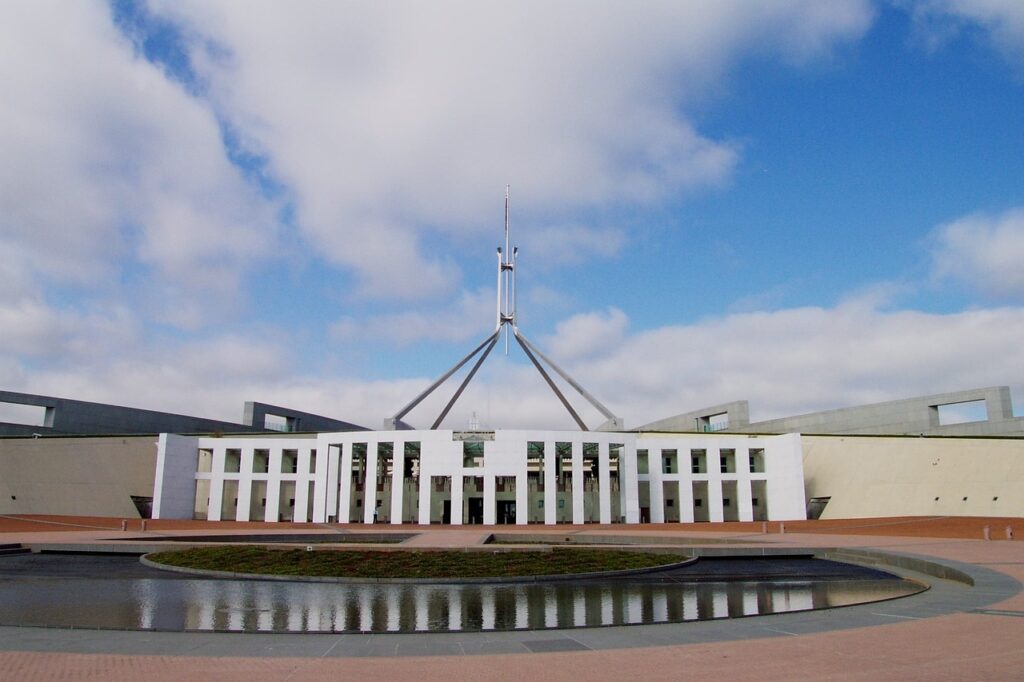The latest in the news and tech tug-of-war
Welcome to PIJI’s first monthly newsletter! Every month we’ll bring you the latest on the public interest journalism sector at home and around the world.
In this issue, our chair Allan Fels discusses Australia’s Media Bargaining Code and we take a look at recent developments in similar international legislation.
If you have news, views or interesting research projects that our community should know about, drop a line to info@piji.com.au.
Allan Fels: The future of the Media Bargaining Code in the new parliament
As the dust settles from the federal election, it is incumbent on the government to stand firm in its commitment to reform the news landscape by holding tech platforms to account and providing greater support for smaller, independent and regional publishers.
Stalling tactics and costly tantrums: Latest in international push for news-digital media deals
From major triumphs to muted efforts, here are some of the biggest international developments in news media bargaining agreements over the past 12 months.
ICYMI: Industry updates
Australia
- LINA’s ‘Our News, Your Voice’ campaign raised $90,000 in one week for 50 newsrooms across the country. The success of this fundraising and awareness campaign demonstrates the strength of community support for local news outlets and the future of public interest journalism.
- A data breach saw the personal data of an estimated 16,000 subscribers to major Nine publications leaked online. While the leak didn’t contain credit card or bank details, it still left thousands of people at heightened risk of cyberattack or scams. The incident raises questions about whether news organisations are too data-hungry, and whether they can offer the necessary protection to justify their collections.
- Croakey Health Media is calling on the government to increase support of independent media organisations, some of which – including Croakey – were judged ineligible for News and Media Relief Fund Program assistance.
- Generative AI is often marketed as a tool for media workers, not a replacement. But a recent Australian experiment showcases the potential for the technology to encroach on roles in the industry. CADA, a Sydney-based ARN radio station, admitted to secretly using an AI-generated segment host for months. The female and Asian appearance of the AI host, Thy, also highlights the increased risk faced by ethnically-diverse and female industry members who are already fighting for equal opportunities and representation.
- Freelance journalists continue to fight for better pay and conditions from Nine newspapers, Guardian and News Corp.
- The Medianet 2025 Media Landscape Report provides insights into journalists’ concerns over technology, social media and media credibility. While the report finds more journalists are using generative AI in their work, concern is also increasing over the technology’s effect on journalistic integrity and job security. Pay disparities between male and female journalists are persistent, while regional and suburban journalists remain the most financially vulnerable in the cohort, with many earning less than $60,000.
- ACMA’s News media in Australia: 2025 report, released as part of the government’s News Media Assistance Program, examines the state of diversity across professional news in Australia. Key insights include a 19 per cent decrease between 2011 and 2021 in the number of people working in journalism for their main job, and the strong influence tech giants have over Australia news consumers aged under 45.
Around the World
- The perils of overconfidence in generative AI were demonstrated once again after readers of The Chicago Sun-Times noticed several fake titles were included in a recommended reading list. This came months after a 20 per cent staffing cut.
- Sweden committed SEK 70 million ($11 million) in support to the Organized Crime and Corruption Reporting Project (OCCRP), a global nonprofit investigative journalism network. The financial boost comes after the OCCRP was forced to lay off 20 per cent of its staff after the US government froze foreign aid, including more than US$268 million ($415 million) allocated to support ‘independent media and the free flow of information’.
- The Trump administration fired nearly 600 contractors at Voice of America, a US-funded international news network delivering independent reporting to countries with restricted press freedom. The cuts, which defy a court order requiring the government to preserve strong news operations at the organisation, affected mostly journalists, some of whom now face deportation to authoritarian countries.
- Proposed legislation in Hungary aiming to ban groups described as threat to national sovereignty could pose a threat to local independent media. The ruling party, which holds significant sway over public news media, accused foreign-funded media organisations of shaping the country’s political discourse with propaganda regarding migration, gender issues and Ukraine. But critics say the legislation is all about retaining control and restricting free speech.
- Ireland’s media regulator announced €5.7 million ($10 million) in funding for local news and court reporting, along with special investigative projects. More than 100 outlets across the country were awarded grants, including local and national publications.
- Applications closed in Brazil for the first round of funding to support 15 news organisations with up to BRL 150,000 ($40,590) annually for up to three consecutive years.
- The Israel-Palestine war was labelled the deadliest conflict for journalists in recent history, with death toll estimated to be more than 170 since October 2023.
- The State of the Media: Pacific study revealed unprecedented pressure and resilience in Pacific media sector. The Pacific’s media sector is demonstrating impressive resilience despite resource challenges, changes to regulations and laws, and threats to media freedom. The region’s challenges include the accelerated spread of misinformation and disinformation accompanying increased internet access.
Have something to share? Submit content for review to info@piji.com.au

